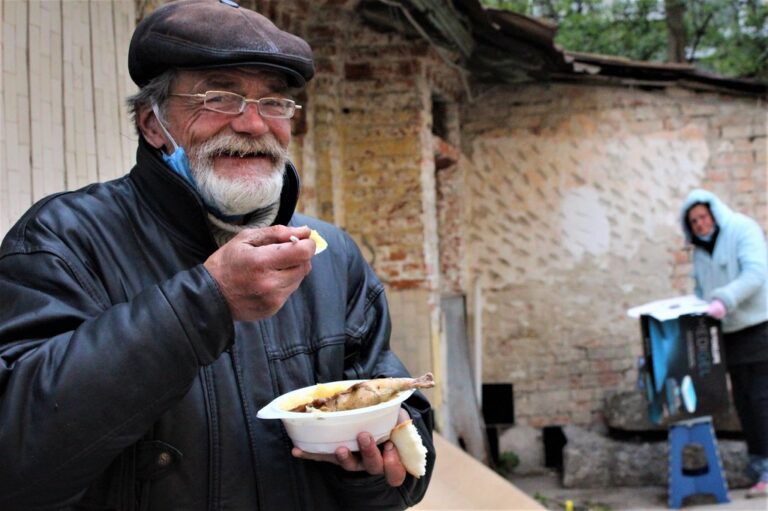On World Food Day, Caritas Internationalis calls for targeted actions to fight food insecurity, by protecting the environment, stopping conflicts, promoting small-scale sustainable agriculture programmes and identifying priority food security zones.
As early as last May, the 165-member confederation raised the alarm about the serious consequences for food security that the pandemic and the containment measures to prevent the spread of the virus would have. Today the data are alarming. According to the World Food Programme, 230 million people are at risk of starvation. This is 130 million more than last year.
The most vulnerable are the ones who pay the most for it. As Aloysius John, Caritas Internationalis’ secretary general says, “This year World Food Day is marred by the COVID-19 pandemic which has severely exacerbated food insecurity and denied access to food to those who were already poor and highly vulnerable.”
Caritas Internationalis serves hundreds of thousands people who go hungry due to lack of means to buy food and migrants and displaced fleeing their homes and people living in camps daily. The confederation also promotes eco-friendly agriculture programmes in disadvantaged rural areas to empower people and make them able to produce their own food and earn decent incomes from selling on local markets. Caritas is committed to creating conditions for food security and to addressing problems such as climate change and environmental degradation.
“Caritas Internationalis supports the fundamental human right to adequate food, a right of which the most vulnerable are now even more deprived because of the pandemic. We are concerned by the growing food insecurity in different parts of the world and in particular the Sahel and the Great Lakes region due to climate change and ongoing conflicts. A neighbour going hungry is the responsibility and concern of all members of the global community and we need to act in solidarity, says Aloysius John.

Caritas serves hundreds of thousands people who go hungry due to lack of means to buy food. Photo by Caritas Spes Ukraine
In the spirit of Pope Francis’s recent encyclical letter, Fratelli Tutti, Caritas Internationalis calls for more solidarity and a sense of responsibility towards the neighbour, in particular those who are oppressed by hunger and instability due to violence. The globalisation of solidarity must first address the issue of “food for all” as an essential human right. Caritas also echoes the Holy Father by remembering that wasting food is the equivalent of depriving others of the food they need to survive. “Wasted food is food taken away from others,” John added.
The confederation firmly believes that the fact that 11 percent of the world’s population lives in hunger is an issue that must be addressed with strong political will and commitment.
Caritas therefore calls on the political leaders to take the necessary steps to:
– Provide humanitarian organisations with the necessary funds to address immediate needs.
– Act against climate change and for the protection of the environment.
– Promote small-scale farming by allocating adequate programmes and funds for such activities.
– Stop the war and conflicts that put hundreds of thousands on the road to exile and increases food insecurity.
– Identify priority food secure zones to promote projects for the poorest.
